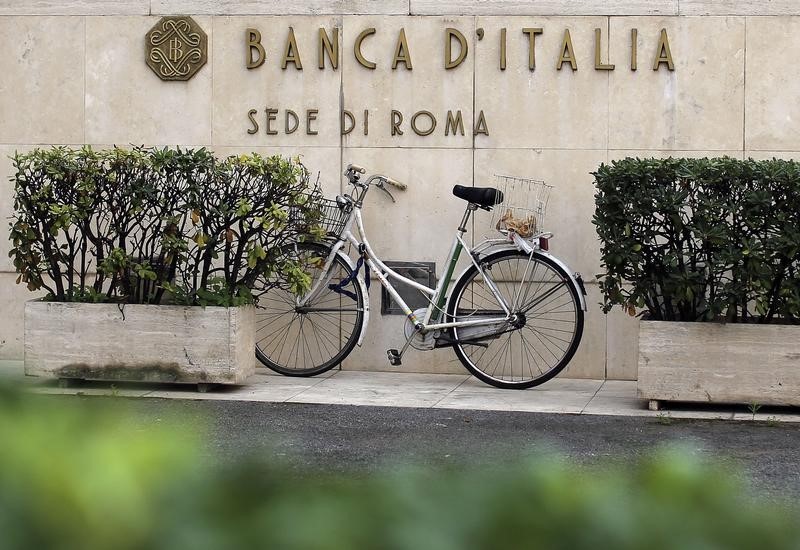By Valentina Za
MILAN (Reuters) - Bank of Italy Governor Ignazio Visco welcomed on Wednesday a European Union proposal to set up state-backed vehicles to buy bad loans off banks, but said participation should be voluntary.
In an effort to speed up the unloading of bad debt by banks, EU finance ministers on Tuesday approved a blueprint to create national "asset management companies" that could help develop the market for bad loans.
"We believe such a measure would potentially be useful," Visco said in a speech to the Italian banking association.
"For it to be truly successful, the assets should be transferred at a price not too far from their real economic value; banks should take up the scheme voluntarily; the features of restructuring plans by banks participating should be agreed in advance," he added.
A harsh recession which ended in 2014 saddled Italian banks with 349 billion euros ($400 billion) in impaired debts, one third of Europe's total.
Banks have been slow to sell bad loans as a gap between their book value and prices investors are ready to pay means they can only be sold at a loss. At the same time, a clogged judicial system means recovery procedures take years.
Visco warned that slow repossessions would become an even bigger issue for Italian banks if the EU decided to apply rules, currently under discussion, forcing lenders to meet mininum provision levels on loans turning sour.
DATA
Italian banks must improve the quality of bad loan data as key information on collateral is sometimes still missing, despite the Bank of Italy's efforts to force lenders to tidy up their loan records, Visco said.
"The quality of information, initially low, has got better ... (but) there are further margins for improvement," he said.
He said data could help banks more actively manage doubtful loans before borrowers become insolvent so that they could either help them get back on their feet or, if necessary, raise provisions.
Provisions on average cover 62 percent of the value of loans to insolvent borrowers while the coverage of so-called 'unlikely-to-pay' loans - the stage before default - is just 33 percent.
"The Bank of Italy favors a scenario in which banks work out their non-performing loans internally, without selling them, and the various moves being suggested should improve banks' ability to do just that," said Andrea Resti, who advises the European parliament on banking supervision.
Visco urged hundreds of small cooperative banks that are set to merge into two large groups to book any loan losses this year, ahead of a check-up the European Central Bank will conduct on their assets in the first half of 2018.
